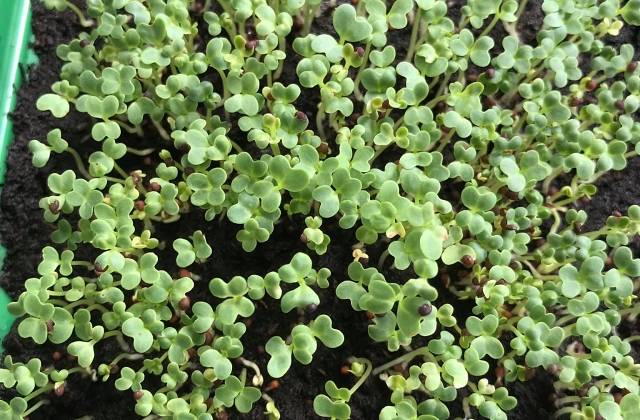The Best Microgreens For Rabbits

If you’re growing a litter of miniature roses or bushes, why not try one of the best microgreens for rabbits on the market? These adorable little plants come in a large variety of colors and can be a great addition to any rabbit’s outdoor living space. They grow quickly and have few maintenance requirements. In addition to being low-maintenance, they also taste great. With good reasons to choose them, let’s find out more about microgreens for rabbits.
There are several different types of vegetables like carrots that are suitable for growing indoors, but most rabbits do not like them. Cale and lettuce are rich in beta carotene and vitamin A, both of which are vital for your rabbit’s health and growth. Microgreens, on the other hand, come in vibrant, bright colors making it easier for to recognize them by the naked eye. It is also quite tender, making it even more attractive to rabbits particularly when it’s in season. They will absolutely adore eating these vegetables like carrots.
In addition to being tender, microgreens are low-maintenance, so they won’t need to be trimmed much at all. Another bonus is that eating them is quite pleasant for your rabbit because it does not taste like carrots or parsnips. Many people choose vegetables like celery, beets and tomatoes over carrots because these are among the best vegetables for rabbits. The following are some tips to help you select the best microgreens for rabbits.
First of all, look at the size of the bags. Rabbits like vegetables that are small and have plenty of space in between each piece. You can use a measuring tape to find out how much space is available and use that as your guideline when picking the right bags. When shopping online be sure to look for the best quality and price as well? Some of the better brands contain high quality fiber and are reasonably priced. Once you’ve found the right bags, it will be easy to choose the best microgreens for rabbits eating vegetables.
The size of a rabbit’s bowl should be based on the size of your rabbit’s mouth. Large breeds will require a larger bag than smaller ones just because their mouths are usually bigger. If the rabbits you plan to buy from a pet store have the space, it might be best to pick a bag with multiple pieces rather than one large one. Bags with more than two pieces are good because you’ll be able to provide different vegetables to your rabbit.
Another good idea is to provide different vegetables so that your rabbit has something to chew on. Some rabbits don’t like cabbage very much. Others won’t eat lettuce at all. Try different vegetables until your rabbit likes them. Sometimes the best way to solve the problem is to simply move on to something else.
Once your rabbit is accustomed to different vegetables, try changing up the types of vegetables once in a while. If your rabbit’s always eat carrots you can change to lettuce or peas once in a while. Changing up the type of food will keep your rabbit’s interested in eating and reducing your vet bills. Make sure that they are eating only high quality, fresh vegetables. Avoid putting potatoes, onions or other spicy vegetables down their throats. Try some of the softer vegetables like spinach, celery and carrots.
If you aren’t able to give fresh vegetables to your rabbit very often, don’t worry. There are many great supplements that can be purchased for your rabbit that will provide them with the vitamins and nutrients that they need to stay healthy. Great Rabbit Power is one great product that is available. It contains a great amount of vitamins, minerals and other beneficial ingredients such as aloe vera. It is a great supplement for your rabbit that can be used every day.